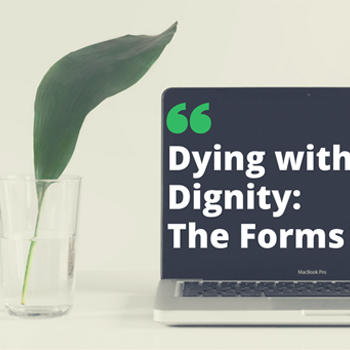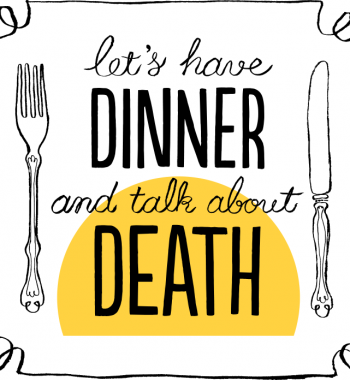
Paperwork is rarely anyone's cup of tea, but there are some forms that are a little more life changing than others...
And as much as we may shrug off the idea of ever being in a position in which we are unable to make decisions regarding our health autonomously, it’s a possible reality that is wise to plan for.
Advance care planning is not typically found in most people’s everyday vocabulary. It is a term that is most used when actively making end of life plans, but even that is something that many people shy away from. Which is exactly why we want to talk about it: because advance care planning is very much worth turning your attention to at any stage of life – whether you are young or old.
Those who live with chronic or potentially terminal illnesses will most probably be familiar with the forms associated with advance care planning which give medical power of attorney to a nominated person should they be incapable of making decisions regarding their treatment themselves. These forms may include specifications regarding the types of medical care that they wish to receive dependent on certain situations that can arise.
However for the majority of us, the idea of filling out forms of this nature may have never crossed our minds. We often think of losing our capability to make decisions based on notions of dementia in old age, but rarely do we seriously consider the possibility of being in a devastating car crash or sporting accident that may require someone else to make the decisions relating to our medical treatment.
As part of Grand & Grave’s commitment to building awareness regarding death literacy we thought we’d start by sharing some links to the advance care directive forms available for each state in Australia.
What is advance care planning?
Advance care planning is all about taking control of your health care wishes, for both now and the future. It involves a small amount of paperwork, and that’s it.
Not only will sorting out these couple of bits of paperwork put you in good stead should anything unfortunate happen to you, but it will also ease the stress of loved ones should they find themselves in the position of having to make decisions on your behalf without knowing your wishes.
And that’s what death literacy is all about: creating clarity and reducing anxiety for both yourself and those you are close to. There will be times in our lives occur when our mortality will be something that cannot be ignored, and it is a beacon of light to know that the finer details have been shared and in some way taken care of, allowing for time to be well spent amongst those you love.
What does advance care planning involve?
- Appointment of a Substitute Decision Maker: A person who can make health care decisions for you if you are too unwell to do this for yourself.
- Creation of a “Living Will”: Writing your wishes down in an advance care directive.
How do I kickstart my advance care plan?
Right here, right now! Simply follow the links below to download the forms relevant to where you live.
It’s easy to just print out what you need and get started on your living will today!
Below are links to Advance Care Planning’s Advance Care Directive resource pages for each Australian state:
So why not make an active step towards improving your death literacy and get started on your Advance Care Directive today. Even by beginning with just a discussion on ideas for what would be in your living will with friends and family you will be opening up awareness on the importance of advance care planning for both yourself and others.



